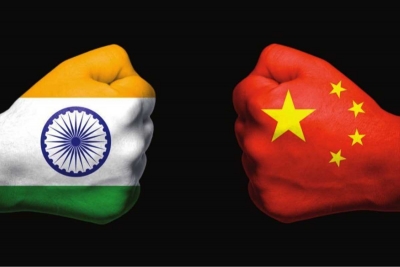As tensions between India and China mount over border clashes, the Maharashtra government has put on hold three major agreements signed with Chinese companies at the recently concluded Magnetic Maharashtra 2.0 investor meet, officials said.
The proposed projects entail investments of around Rs 5,000 crore in the state.
“We have taken this decision in consultation with the Central government. These agreements were signed prior to the development on the Indo-China border and killing of 20 Indian soldiers,” Industry Minister Subhash Desai said.
He added that the Ministry of External Affairs has advised the state government against signing any further agreements with Chinese companies.
It may be recalled that at the online Magnetic Maharashtra 2.0 meet, the state government signed agreements worth over Rs 16,000 crore with global companies including Chinese groups.
They include a Rs 3,770-crore memorandum of understanding (MoU) with the Great Wall Motors to set up an automobile manufacturing unit in Pune' Talegaon and a Rs 1,000-crore in partnership with Foton (China) and PMI Electro Mobility.
Besides, Henglu Engineering made a commitment of Rs 250-crore for the expansion plans at its unit Phase II in Pune.
Apart from China, the state signed around nine other MoUs with companies from the US, South Korea, Singapore and various domestic entities, with huge employment generation potential.
On Sunday, the Manohar Lal Khattar-led BJP government in Haryana too cancelled contracts with Chinese companies. The project for installation of pollution control equipment worth Rs 780 crore at two of its thermal power facilities were scrapped, in the wake of heightened tension between the two neighbours.
Last week, the Indian Railways’ Dedicated Freight Corridor Corporation of India Limited (DFCCIL) too terminated a signalling contract given to Beijing National Railway Research & Design Institute of Signal & Communication in the year 2016. The project cost was estimated at Rs 471 crore. The decision, according to the railways was taken due to the delay in project and that only 20 per cent of the work had been completed in four years..




















